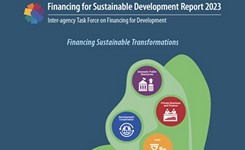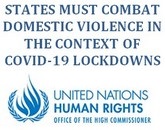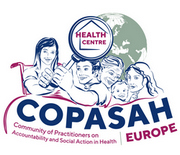
VIDEO LINK - Who we are? The Civil Society Financing for Development Mechanism - YouTube
The rules of the global economy affect all aspects of our life and yet many decisions with regard to this are being made in undemocratic forums dominated by rich countries. The UN's Financing for Development process aims to create a democratic space to address historical inequalities in global economic governance and demand for economic justice. Civil society is considered a key agent in this process, and the Civil Society Financing for Development Mechanism is the process through which civil society can engage in the Financing for Development process. It is an open platform of several hundred organizations and networks worldwide that follows the Financing for Development process closely. The Mechanism works across all Financing for Development thematic pillars with an interconnected, feminist, Global South, and decolonial perspective and exposes the urgent need for systemic reforms. Learn more about us and join us in supporting the democratization of global economic governance.
2023 Financing for Sustainable Development Report: Financing Sustainable Transformations (PDF) – 204 Pages
Sustainable development prospects continue to diverge between developed and developing countries. The 2023 Financing for Sustainable Development Report finds that SDG financing needs are growing, but development financing is not keeping pace. The war in Ukraine, sharp increases in food and energy prices, and rapidly tightening financial conditions have increased hunger and poverty and reversed progress on the SDGs. If left unaddressed, a “great finance divide” will translate into a lasting sustainable development divide.
Stakeholders must maintain a long-term focus on resilient and inclusive development, while addressing near-term crises. Delaying investment in sustainable transformations is not an option – not only because it would put the 2030 Agenda and climate targets out of reach, but also because it would exacerbate financing challenges down the line. This report calls on the international community to take advantage of this moment to align financing with sustainable development through three sets of actions.
- First, scale up development cooperation and SDG investment: These can support the UN Secretary-General’s call for an SDG Stimulus.
- Second, strengthen the international financial architecture by bringing different reform processes together, strengthening effectiveness, ensuring full alignment with the SDGs and climate action.
- Third, accelerate national sustainable industrial transformations: Countries need to chart their own national paths to achieve the SDGs with a new generation of sustainable industrial policies, supported by integrated national financing frameworks.
The world is at a crossroads. The international community must deliver on the outstanding promise of the Addis Ababa Action Agenda, deliver sustainable transformations, and achieve the SDGs.
Chapters:
- Overview and Key Messages
- Chapter I: The global economic context and its implications for sustainable development
- Chapter II: What will it take? Financing sustainable industrial transformation
- Chapter III.A: Domestic public resources
- Chapter III.B: Domestic and international private business and finance
- Chapter III.C: International development cooperation
- Chapter III.D: International trade as an engine for development
- Chapter III.E: Debt and debt sustainability
- Chapter III.F: Addressing systemic issues
- Chapter III.G: Science, technology, innovation and capacity-building
- Chapter IV: Data, monitoring and follow-up
Source: WUNRN – 15.04.2023






























